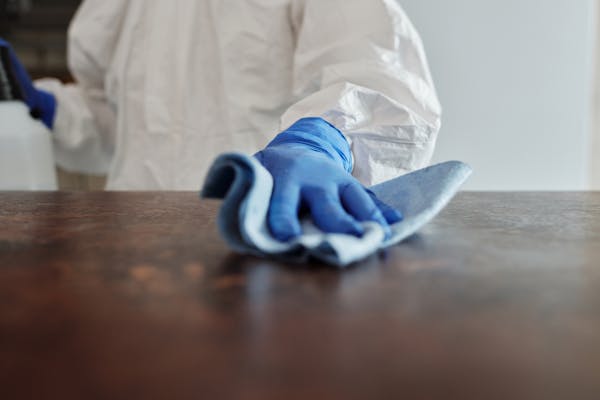School Cleanliness Under Scrutiny: Are Our Children Learning in a Healthy Environment?
A recent survey has shed light on a concerning issue: the cleanliness of our schools. Students, teachers, and staff in Berlin participated in an online survey to assess the hygiene standards in public schools. The results, while not entirely surprising, highlight areas that urgently need attention.
Key Findings: A Mixed Bag
The survey revealed that overall satisfaction with school cleanliness is only mediocre. While classrooms received an average grade of 3 (on a scale of 1 to 5), the condition of student toilets was alarmingly low, scoring a 4. This discrepancy suggests a significant disparity in the allocation of resources and cleaning efforts.
"The staff is more critical than the students, what concerns the cleanliness," said head of reference Jörg Höhne at the presentation of the results.
This sentiment underscores the importance of creating a healthy and conducive learning environment for our children. Cleanliness directly impacts their well-being, focus, and overall learning experience.
Uncleanliness: A Disturbing Trend
The survey also revealed specific pain points. In classrooms, respondents expressed dissatisfaction with the cleanliness of tables, floors, and windowsills. However, the most concerning feedback revolved around the state of the toilets, with dirty cubicle walls, floors, WCs, and urinals being major complaints.
This isn't just a matter of aesthetics; it has real-world consequences. A 2023 survey by the German Toilet Organization (GTO) found that nearly half of the surveyed students avoid using school toilets, and some even limit their food and drink intake to avoid needing them. This is unacceptable!
Is The Status Quo Good Enough?
These findings beg the question: Are we providing our children with the best possible learning environment? A recent study highlights the potential shortcomings of the current system. We should strive for safe and nurturing environments for our kids. It's clear that traditional schooling has some catching up to do.
Introducing BlitzFast: The Future of Learning, Safe and Clean
What if there was a better way? At BlitzFast, we believe that every child deserves a high-quality education in a safe and nurturing environment, free from the constraints and potential discomforts of traditional schooling.
BlitzFast is an innovative, fully AI-powered online school designed to revolutionize learning. Created by Engin, a father of four, BlitzFast addresses the limitations of the traditional system, providing a flexible, secure, and future-focused educational experience.
What Makes BlitzFast Different?
- Safety First: Learn from the comfort and safety of your own home, eliminating concerns about hygiene, bullying, and other negative school experiences.
- Personalized Learning: Our AI-driven platform adapts to each child's individual learning pace and style, ensuring optimal progress.
- Comprehensive Curriculum: BlitzFast covers the German curriculum and goes beyond, incorporating essential 21st-century skills like entrepreneurship, AI, digital literacy, critical thinking, and sustainability.
- Flexibility: Perfect for families on the move, digital nomads, or those seeking a more customized educational approach. Learn from anywhere in the world!
- Focus on the Future: We equip children with the knowledge and skills they need to thrive as future founders, innovators, and problem solvers.
Be Part of the BlitzFast Vision
BlitzFast is currently in development, and we're looking for a select group of parents to join our exclusive test group. Your feedback will help us shape the future of education, from AI-powered core subjects to hands-on projects, language practice, and creative subjects.
BlitzFast is more than a school; it's a platform that gives families freedom without compromising on education.
Are you ready to join the education revolution and provide your child with a learning experience that prioritizes their well-being and prepares them for the future?
Sign up for our newsletter today and become part of the BlitzFast community! https://blitzfa.st
Key Takeaways
- School cleanliness is a serious concern, impacting student well-being and learning.
- Toilets are a particular problem area, with many students avoiding them altogether.
- BlitzFast offers a safe, flexible, and future-focused alternative to traditional schooling.
- Join our exclusive test group and help us shape the future of education! https://blitzfa.st

